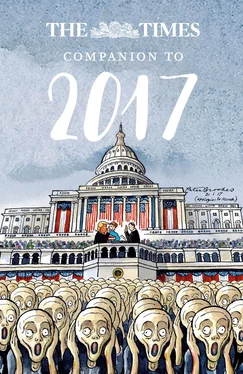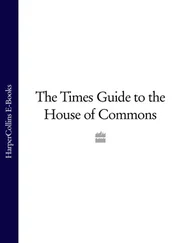1 ...7 8 9 11 12 13 ...19 Peace, who is spattered with torture scars, asks: “Do white people in Europe like black people? I’m afraid. We’re always treated like animals.” At night, while on watch on the men’s deck upstairs, I listen to Michael, 17, from Nigeria, talking of “making [his] mother proud” in Italy. “Do you think they will let me study? I want to be a doctor.”
Wednesday, October 5
Overnight the Italian coastguard again refused to take Joy. Her corpse is beginning to smell. In the morning we dock and the ship goes quiet. Everyone is split into groups depending on their injuries and their ages. They go ashore for medical checkups and registration.
The UN says that more than 80 per cent of Nigerian girls landed in Italy are trafficked into prostitution. I warn the girls to keep together and stay in the reception centres. Hope is mortified that she has only a blanket to wear. I wash and dry my pyjamas to give to her.
Hours later, as I leave the boat, I hear my name called. The girls are still being processed. Hope, wearing my pyjamas, is grinning. We hug and they board buses, promising to stick together.
Thursday, October 6
More than 10,000 people were pulled from the water in 48 hours this week. We have no idea where people have gone or if Lovett and the others made it. I add as friends the few who have Facebook. Kougan, 23, from Cameroon, who kept me company on night watch, pops up on Messenger: “I very grateful to become your friend Bella, take care for ur self.”
‘TANTRUMS AND SHOCKING RACISM’ OF INQUIRY’S DYSFUNCTIONAL DAME
Andrew Norfolk, Sean O’Neill
OCTOBER 14 2016
ON A SUMMER afternoon this year Dame Lowell Goddard stood at the doorway of her Westminster office and shouted in anger. Unless she got her own way, she is said to have declared, “I’m going to pack my bags, go back to New Zealand and take this inquiry down with me.”
A visitor to the headquarters of the national child sex abuse inquiry might have been shocked, not least because the threat was made by the judge paid £500,000 a year to lead an investigation forecast to run for a decade at a cost of £100 million.
Dame Lowell’s staff, however, barely flinched. They were used to her tantrums, and worse. Multiple senior sources have told The Times that the judge peppered her 16 months at the helm of Britain’s biggest public inquiry with racist remarks and expletive-ridden outbursts. Insiders say that Dame Lowell, 67, also appeared to have memory lapses and failed to grasp legal concepts.
She allegedly said that Britain had so many paedophiles “because it has so many Asian men” — a comment that left colleagues stunned. “I was so shocked to see the number of ethnic people,” she is said to have told a colleague, while she allegedly commented that she had to travel 50 miles from London to see a white face. Her home in the capital was a smart, taxpayer-funded flat in Knightsbridge.
Several sources described Dame Lowell’s reluctance to question the propriety of the royal family. Discussing the Prince of Wales’s friendship with a bishop jailed last year for sex offences against young men, the judge is said to have insisted: “Prince Charles couldn’t possibly have had anything to do with that, not with his breeding.” The source added: “For someone who claimed not to understand what the establishment was, she had a reverence for it that was quite astonishing.”
On the 23rd floor of Millbank Tower, where the Independent Inquiry into Child Sexual Abuse (IICSA) has its offices, staff soon realised that they had a problem. They were supposed to be putting in place the foundations of an investigation into suspected abuse at dozens of institutions, including schools, care homes, the church, the armed forces and parliament.
Since being launched by Theresa May in 2014, IICSA has hired more than 150 staff, opened three regional offices, started the Truth Project to allow abuse victims to give testimony anonymously, commissioned an academic study and begun a legal disclosure exercise demanding that institutions under investigation hand over millions of pages of documents.
Yet it was so dysfunctional under Dame Lowell’s leadership that work often ground to a halt because senior staff felt “totally paralysed”, one said.
Former colleagues, who have asked not to be named, were puzzled then increasingly troubled. One said that staff who were committed to the inquiry’s success felt trapped in “an impossible situation”. They felt they were led by someone who at times behaved “like a very angry child”.
“The pressure was immense. She was rude and abusive to junior staff, she didn’t understand the issues and, worse than that, she used appalling terms all the time. It was almost intolerable,” the insider claimed.
Senior staff held furtive meetings to discuss their options. It was agreed that the best hope lay in sharing their concerns with the Home Office. Mrs May, then home secretary, hired Dame Lowell. Only she could fire her.
Whitehall’s instinct in the face of calamity is often to hide it, however. Until now, the true picture remained secret. Observers have pointed to the irony of a body established to dissect a culture of institutional secrecy, denial and cover-up becoming an exemplar of the problems it was designed to expose. The inquiry’s senior team were all complicit, said one insider. “Goddard should never have been appointed and she should have been removed so much earlier than she was. She was catastrophic.”
Dame Lowell arrived in the UK from New Zealand after two false starts in the search for someone to lead the inquiry. Its first two chairwomen were forced to step down in quick succession over their alleged closeness to the British establishment, and the home secretary could not afford a third mistake. When the appointment was announced in February last year, it was claimed that Dame Lowell had been selected after 150 nominees were put through an exhaustive vetting process. The lead counsel, Ben Emmerson, QC, hailed a due diligence exercise of “unprecedented depth and detail”.
Insiders tell a different story, of the Home Office’s “blind panic” after the resignation in October 2014 of the inquiry’s second chairwoman, Dame Fiona Woolf. She survived a month; her predecessor, Baroness Butler-Sloss, had lasted six days. “They were desperate. It couldn’t be a judge from England and Wales so they decided to look at the Commonwealth, but they also wanted a woman. There wasn’t much choice. Then Goddard’s name popped up. It was all signed and sealed very quickly,” a source said.
Doubts over Dame Lowell soon emerged. She spent six weeks negotiating a pay deal that eventually included a £360,000 salary plus a £110,00 annual housing allowance, a chauffeur-driven car and four return flights a year to New Zealand with her husband, Christopher Hodson, QC. One senior source viewed such perks as “completely inappropriate for a public servant”. Dame Lowell, however, is said to have been outraged that the deal only entitled her to business-class not first-class seats.
“We all had to tiptoe around her. It set the tone for an organisation that became secretive,” said a source who accused the judge of behaving like an “autocratic and dictatorial” monarch.
Sources described her regular use of racist language as like “going back to the 1950s”. One described a sense of shame that no complaints were made. “You’ve got someone making racist comments who clearly has a racist attitude, and nobody says anything because we’re all bloody pussy-footing around.”
Dame Lowell was heavily reliant on Mr Emmerson, 53, a leading human rights QC who is not renowned for his emollience or team-working skills. In early 2015, before he began working with her, he described Dame Lowell as a woman of “courage, independence and vision”. Within weeks of her arrival he is understood to have thought differently. In tandem, said one observer, their impact was “utterly toxic”, adding: “So many people were devoted to trying to make the damn thing work, to getting to the bottom of some really egregious societal problems. They all deserved so much better.”
Читать дальше












